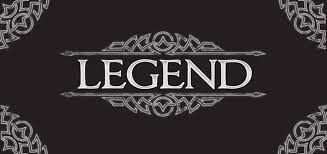legend
英 [ˈledʒ.ənd]
美 [ˈledʒ.ənd]
- n. 传奇;说明;图例;刻印文字
- n. (Legend)人名;(西)莱亨德;(英)莱金德
使用频率:

记忆方法
legend-----里瓦尔多的腿 +end (最后)成为一个传奇-------------n.传说
2. 分尸法:leg end 一条腿(leg)走到终点(end),还不够传奇(legend)吗?
2. 分尸法:leg end 一条腿(leg)走到终点(end),还不够传奇(legend)吗?
中文词源
legend 传说,地图图例,刻印文字
来自拉丁语legere,读,说,词源同lecture.原指读,讲述宗教圣徒的生平事迹,后词义引申为使徒传说或传奇。现也用于地图图例等词义。
英语词源
- legend
-
legend: see lecture
- legend (n.)
- early 14c., "narrative dealing with a happening or an event," from Old French legende (12c., Modern French légende) and directly from Medieval Latin legenda "legend, story," literally "(things) to be read," on certain days in church, etc., from Latin legendus, neuter plural gerundive of legere "to read, gather, select" (see lecture (n.)).
Used originally of saints' lives; extended sense of "nonhistorical or mythical story" first recorded late 14c. Meaning "writing or inscription" (especially on a coin or medal) is from 1610s; on a map, illustration, etc., from 1903.
权威例句
- 1. His pitching was a legend among major league hitters.
- 他的投球在大联盟的击球员中是个传奇。
- 2. He could not possibly have been poisoned as popular legend has it.
- 他不可能像民间传说的那样被下了毒。
- 3. He has become a legend in the annals of military history.
- 他已成为军事史上的一个传奇。
- 4. The castle is steeped in history and legend.
- 这座城堡历史悠久,充满了传奇。
- 5. It is difficult to separate legend from truth.
- 很难将传说和事实区别开来。
